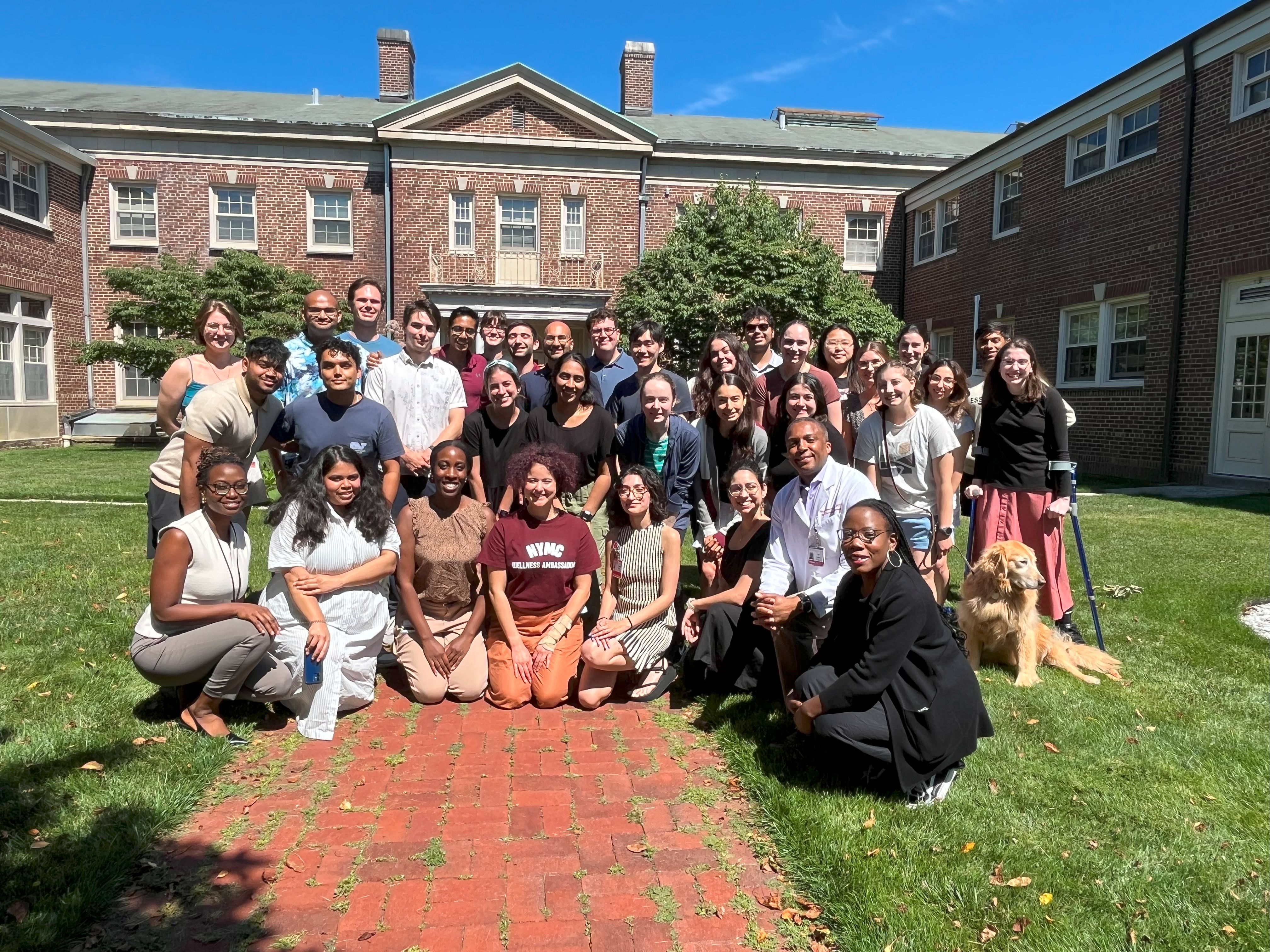For Medical Students, the Pre-Matriculation Program Continues to Evolve
Changes were Implemented to Better Suit the Needs of Incoming Students in the School of Medicine

“With an entirely new academic rigor, a new campus to navigate, and over 200 classmates to meet, it can be easy to feel overwhelmed before classes even begin. The School of Medicine (SOM) Pre-Matriculation Program (PMP) aims to ease that transition by providing early exposure to key concepts, mentorship opportunities, and a supportive community that helps students hit the ground running,” said Sumaita Mahmood, SOM Class of 2026, student co-director of PMP.
Under the guidance of new student leadership, the PMP has undergone several changes this year. Offered prior to student orientation in July, the two-week program offers incoming medical students an opportunity to get a head start on their academic endeavors at New York Medical College (NYMC). In its fifth year, PMP aims to maximize students’ understanding of medical school and the experiences they will be exposed to throughout it.
New student leadership was fundamental to PMP’s differences from past years. With an emphasis on being interactive and hands-on, sessions have become increasingly reflective of what students will experience in medical school.
“We wanted students to not only learn what they needed to know, but also why it mattered in a real-world medical context,” said Shelcie Fabre, SOM Class of 2026, student co-director of PMP. “We built in opportunities for hands-on learning that brought the pre-clinical material to life.”
A testament to this was the addition of Clinical Skills Day. Students rotated through four interactive stations in NYMC’s newly renovated Clinical Skills Simulation Center, that introduced them to clinical procedures that they learn though their preclinical development: a neurological physical examination, SimMan, which simulates intensive medical cases, eye and ear examination trainers, and Harvey Heart Sounds, a collection of thousands of heart murmurs and sounds.
“I found the Clinical Skills Day to be the most engaging and eye-opening experience because I had never used a stethoscope, let alone seen Harvey or rotated through a simulation center,” said Kathryn Jano, SOM Class of 2029, and a student in the program this year.
Many other events were new to PMP. Students participated in a Point-of-Care Ultrasound session led by chief residents Jesse Silverman, M.D., Ryan Cheikhali, M.D., and Wei Tang, M.D., at Westchester Medical Center, and a session wherein NYMC faculty shared strategies on how to get involved in research early on. Additionally, PMP co-director Mahmood and Dennis Spencer, M.D., from Building the Next Generation of Academic Physicians led a workshop on designing productive research posters.
Continuing previous years’ focus on wellness, Chopped: Study Snack Edition was a new event where students competed in teams to create healthy yet delicious snacks using pantry staples. Towards the end of the two weeks, PMP held a campus-wide Wellness Fair, bringing in representatives from the virtual health provider, TimelyCare, and therapy dogs.
The program also aims to help students socially, as they meet peers who could become lifelong friends. According to Ryan McCarthy, SOM Class of 2029, and a recent student in PMP, “Our PMP friend group has remained a large part of my social network and has grown to include roommates and many new friends. I was so glad that I had people I knew who I could sit with during orientation, ask random questions, or explore different parts of Westchester and New York City with.”
Beyond hands-on experiences, PMP’s student leadership also reorganized the learning process to aptly reflect that of NYMC. The final assessment for PMP transitioned onto the program Examplify, which is used at the medical college for final exams.
“We also restructured lectures and assessments to better align with the small-group learning sessions and exam styles used during the academic year, allowing students to develop their small-group-specific learning style,” said Fabre.
As PMP ended in July, students entered their first year of medical school prepared for the journey ahead. However, PMP’s journey is still underway. “Looking ahead, we’d love to see future years continue building on the hands-on components of the program,” said Mahmood. “Expanding these elements, especially in sessions that connect clinical, research, and wellness aspects, will only continue to strengthen what is already a deeply impactful program.”

